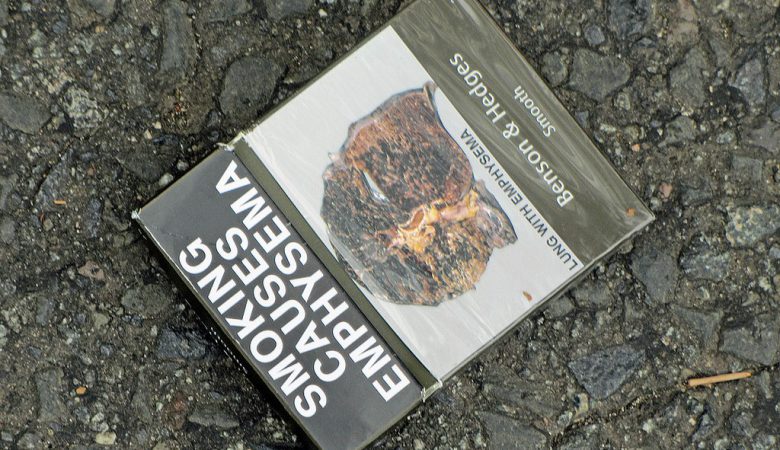UK Plain Packaging Regulations Fail to Respect Property Rights
Regulations imposed in the UK this month dictate all packs of cigarettes must be sold in standardized green packages with graphic and disturbing pictures of some of the dangers of smoking. By the new regulations, all packs must contain at least 20 cigarettes, double the size of the standard pack, with health warnings covering 65% of the front and back. Companies are not allowed to display their trademark either, with their brand name restricted to a standardized size, font, and color. Packages cannot display “promotional” information such as “this product is free of additives.”
To get around these restrictions, some companies like Marlboro have sold durable tins designed to look like an ordinary 10 pack of cigarettes. These tins still display the standard health warnings that had been required of cigarette packs before, but may allow smokers a more convenient package that still displays the company’s trademark. Yet even these simple measures have been under attack.
This is following similar regulations that have been passed in Australia, Norway, and France as part of “plain packaging.” Even more countries have been moving towards picking up the practice though. Georgia is about to implement even more tobacco regulations, and Nepal is to adopt plain packaging in 2018, despite having some of the strictest graphic health warnings in the world, covering 90 percent of the package. This is following the advice of the World Health Organization (WHO), who have vehemently supported plain packaging and other regulations.
Plain packaging is anaffront to property rights and freedom of choice. It violates freedom of speech, denying companies the right to publish harmless and informative material. It violates fundamental property rights, the cornerstone of any free economy, by denying companies their right to display their trademark on their own products. Most ironically of all, there is good reason to believe it isn’t even an effective measure against smoking. When consumers can no longer choose by brand, they choose by price, as we have seen an increase in the number of smokers in both Australia and France.
Since January, when French plain packaging laws took effect, the French shipped over 1 percent more tobacco products into the country than they did the previous year. Likewise, Australia saw a 0.3 percent increase in the first year of plain packaging after four years of decline. Interestingly, factory-made cigarettes declined just 0.1 percent to 18.75 billion, while loose tobacco rose 3.4 percent to 2.32 billion.
Ronald Reagan famously said that governments exist to protect us from each other, and that it goes beyond its limits when it decides to protect us from ourselves. This marks a fundamental divide between those who view the purpose of the law as defending our individual liberties, and those who see the law as a means of controlling a rebellious populace.
While a true free market system requires that customers be adequately informed about products they purchase, this exists as a measure against fraud, misrepresentation, and counterfeiting. However, the goal of plain packaging has never been to inform, but to silence. It does not treat smokers as intelligent adults who can make decisions for themselves, but as children, incapable of taking personal responsibility. Civilized people once believed that we may disapprove of what someone says, yet held that we should defend to the death their right to say it, but the ideology of plain packaging believes what groups cannot achieve by persuasion must be achieved by force. We must hold to these basic principles of democracy, the very cornerstone of which is the defense of private property rights and freedom of speech, both of which are violated by denying companies the legal right to display their own trademark on their own product.

